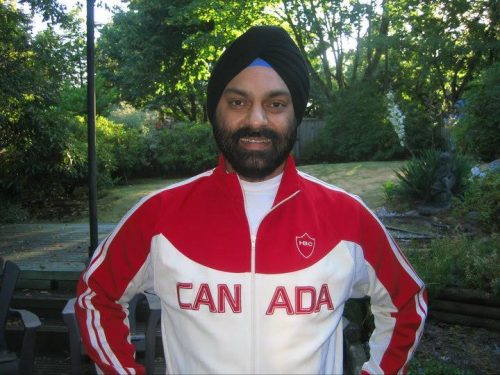Olympic mentorship reaches beyond sport achievement into everyday life
 For Ram Nayyar, it took being bullied as a child to wonder who he really was.
For Ram Nayyar, it took being bullied as a child to wonder who he really was.
The two-time Olympic badminton coach and author started off his life being bullied for his long braided hair, which led to him getting beaten up for looking like a girl. As he suffered in silence, he found himself asking hard questions about what exactly he wanted out of the world.
“I asked myself: what do I want, why do I want it, and what am I going to do about it?” Nayyar said, following a successful presentation on Olympic mentorship at the 2020 Sport for Life Canadian Summit. It was a line of reasoning that led him to pursue a career in coaching.
“For the first while I really struggled with the idea: are you the bullied kid who wants to be accepted and liked? Am I coaching because I want people to like me? Or am I doing this from the right place, for the right reason? And then there’s the 50 million dollar question: what would I do if I had all that money and could do whatever I wanted? I asked myself that and the answer was I would still coach.”
Nayyar reached the zenith of his coaching ambitions this past decade when he served as the head coach for the Canadian National Badminton team in the 2012 Olympics. As the founder of Fearlessness Consulting he’s traveled to over 90 countries around the globe to coach some of the world’s most elite teams and to share his comprehensive vision of how mentorship should work. As one person put it: “Ram is a coach and what he teaches is life.”
“The reason we do sport in Canada, if it’s done correctly, is it teaches you life skills. If it’s done poorly, you’re still a champion but for so many high performance athletes it also means being dysfunctional. If it’s not treated properly, being obsessed and single-minded about your pursuits has the potential to leave that person powerless as they move forward and navigate their life as a whole,” he said.
“If I’ve been a good coach the one thing I can promise is that you can set goals, achieve them, and be happy. At the end of the day, a fully formed human is a happy human. And a happy human is a human with a purpose and a goal.”
That’s why Nayyar travels the world sharing his beliefs, even though many of the people he’s talking to will never be into badminton or may never mentor an Olympic athlete. The concepts that he’s mobilizing and the pathway he’s encouraging people to take are nearly universal. During the Summit he was approached by listeners from radically different fields, all of them coming at the topic from a different angle.
“If we sit outside and coach high-achievers everybody struggles with the same things we all do, but in different ways and at different stages. That’s why you need to start with relationship to self, then work up to relationship with others and relationship with the world. It’s hard to engage with the skills you’re learning if you don’t reflect and handle that first,” he said.
Sport for Life CEO Richard Way was thrilled to once again have Nayyar at the Summit, where he was Co-MC, and loved how his message of addressing the whole athlete resonated with delegates. As a champion of the rectangle approach to Long-Term Development in Sport and Physical Activity, he believes that paying attention to the process of athlete development as opposed to competition results will have a positive impact on those being coached.
“We are so pleased to have Ram, with his experience of coaching high performing people, as Chair of the Physical Literacy for Life charity and one the Board members of Sport for Life,” said Way. “He brings a calm thoughtfulness to provide clarity and purpose to the Board discussion. He has the lived experience of facing racism to coaching Olympic athletes, a unique journey that helps guide us.”


